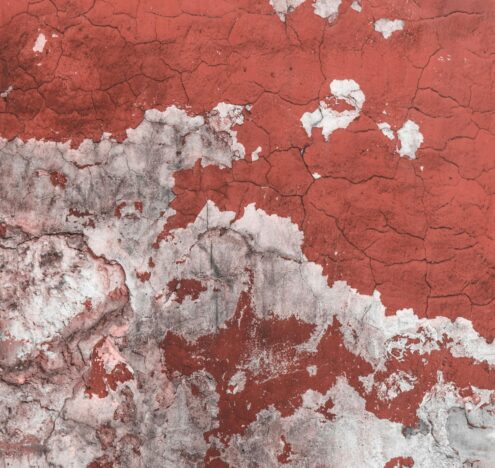In April 2022, renowned Saraiki writer and poet Dr. Ashu Lal was awarded the Kamal-i-Fun award, the highest literary honor in Pakistan. Yet, despite the seemingly high honor, Lal refused the prize. In Saraiki, he posted on his social media, saying his literary activism was more important than the award. He later shared that he could not support an institution and a state that was “anti-people” and “anti-art.”
Lal’s refusal of the award rings similar to Tamil writer Perumal Murugan seven years ago, who posted on his Facebook page saying, “Perumal Murugan the writer is dead. As he is not god, he is not going to resurrect himself. He also has no faith in rebirth. An ordinary teacher, he will live as P. Murugan. Leave him alone,” in 2015.
Murugan’s emotional retirement from writing came following an attack on his 2010 novel, “One Part Woman,” where he was forced to recall unsold copies and even issue a public apology under criticism from right-wing conservatives who felt the book was offensive due to its commentary on religious rituals and caste. The book follows a fictional couple who are unable to have a child. Out of a desperate need to have a child, the wife participates in the local temple festival where for one night, any man and woman, married or not, are allowed to engage in sexual activity. Critics said the novel’s depiction of extramarital sex insults their religious rituals.
No one can deny that many of the conversations we see around class, gender, sexuality, and even state control — that are considered revolutionary even today — existed in the fictional works of South Asian authors who dominated the previous century.
Murugan, who writes in Tamil, returned from his exile with “Poonachi (The Story of a Goat)” in 2018, which uses animals as a metaphor to comment on social oppression and authoritarian control of the weak. “I stopped writing because of the ‘One Part Woman’ controversy, which instead of being an issue of freedom of expression, was turned into an issue of law and order by local authorities,” Murugan tells Inkstick Media.
This kind of law-and-order situation being imposed on authors and creators who seek to comment on anything other than the status quo isn’t particularly new in India or Pakistan. In fact, both countries have increasingly become known for censorship and media crackdowns that have left little room for independent thought. Over the last decade, this increase in censorship has coincided with strong activist movements challenging state leadership.
For many South Asians, the critique of the state by these authors and the pushback to controlling their freedom of expression takes them back to the era of the Progressive Writers’ Movement, or what many are more commonly known as the days of Saadat Hasan Manto and Ismat Chughtai. Both Manto and Chughtai were known for their often controversial takes on social issues, including sex work, gender justice, and Partition. Chughtai’s short story “Lihaaf (The Quilt)” alluded to a same-sex relationship between two women — as a result, she was tried for obscenity. But while those days saw an entire literary movement based on the idea of challenging ideals, fiction in the region today seems a lot more detached from those nuances.
IS WRITING FICTION AN ACTIVIST ACT?
Researcher Sauleha Kamal, whose work focuses on anglophone literature in Pakistan, points out that many literary critics do not agree with there being a direct correlation between activism and fiction. “Literary critics say novels can’t be seen as direct activism because we can’t see any causation, but writers have previously tried to influence society, and in some ways hold up a mirror, and that then influences public ideas in a roundabout way,” she says. But in a region where fiction has long been one of the few outlets to express thoughts freely, writers and publishers alike seem to disagree.
“In one way or the other, even before 2014, political dissent played a role, but post-2014 political dissent has become a must when I commission,” says Arpita Das, the founder of Yoda Press, an independent publishing house in New Delhi. Das further adds that with 20 years of publishing experience, she’s seen how Indian literary narratives and publishing focuses have developed. “Even before the word ‘marginalized’ became common, I just used to say I wanted to create an alternative to the mainstream [at Yoda Press]. At some point, we decided mental health was important. Our first books on mental health written by Indian scholars started coming out in 2016. It’s an evolving narrative for South Asia in the last 20 years,” she told Inkstick.
No one can deny that many of the conversations we see around class, gender, sexuality, and even state control — that are considered revolutionary even today — existed in the fictional works of South Asian authors who dominated the previous century. Begum Rokeya Sakhawat’s “Sultana’s Dream,” a utopian world where men are kept indoors, and women are free to roam publicly, is considered a critical literary contribution even today — and most recently inspired one part of a three-part animated series on Partition. But many writers, like Manto and Chughtai, received acclaim after their death. Most of their lives consisted of being on trial for obscenity or other forms of criticism from authorities who deemed their work inappropriate.
Kamal points out how even today, Faiz Ahmed Faiz’s poem “Hum Dekhenge (We Shall See)” is used to influence or shape many activist movements within the region today. There is a growing narrative about how many of these movements for radical change are homegrown within the region and not “western imports,” as critics of these movements would want others to believe. But despite that native thread, those same connections between literature and activism seem to be pushed to the fringes, which could be a result of the switch in the dominant language. Both then and now, some of the most radical fiction came written in South Asian languages.
ACTIVISM IN DIFFERENT LANGUAGES
Both Lal and Murugan proudly champion their own languages, refusing to engage with English much in their writing — and perhaps rightfully so, since despite English being used for official purposes across the subcontinent, it is still only spoken and read by a small minority. Only 6% of India’s population and 18% of Pakistan’s population speak English, and even fewer can read it. It’s perhaps why Mohammad Hanif’s “A Case of Exploding Mangoes,” which pokes fun at General Zia ul Haq, Pakistan’s ex-military leader and perhaps one of the most controversial rulers in the country, was banned shortly after it was translated into Urdu in 2020. This was almost a decade after the novel was first published in English, during which it received no backlash.
Das shares that much of the lack of real engagement between literature and activism could be because of the increase in English literature, in which she says it seems like something is missing. Comparing South Asian literature to contemporary African literature, she points out that “there’s a powerful way that these African authors make English their own. The way they have made not just the language which was, like it was to us, a colonial legacy to them, but how their narrative seems to dominate, and they have made the language, and the form falls in shape with that, and that might mean an editor in London would say this isn’t accurate English, but they don’t give a damn.” She continued on: “There’s a tremendous political nuance in the way they do it.” She believes that the lack of a dominant narrative in South Asian literature and the need to write the language “properly” leads to a disconnect.
“Literary activism has suffered due to the rise of English, and a lot of the conservative movements in both India and Pakistan tend to reach people through non-English languages,” Hindi-Urdu translator Daisy Rockwell tells Inkstick Media. It’s not that the ideas that are glorified in Manto and Chughtai’s work are no longer prevalent amongst the masses, rather, those ideals are no longer given importance simply because they don’t present in English. For Das, the answer lies in diversifying publishing to keep up with the diversifying pool of writers. Writers like Murugan also champion the importance of literary collectives because no one can speak to change better than the people who live it, in their own words and their own language.
Anmol Irfan is a freelance journalist and founder of Perspective Magazine.





















